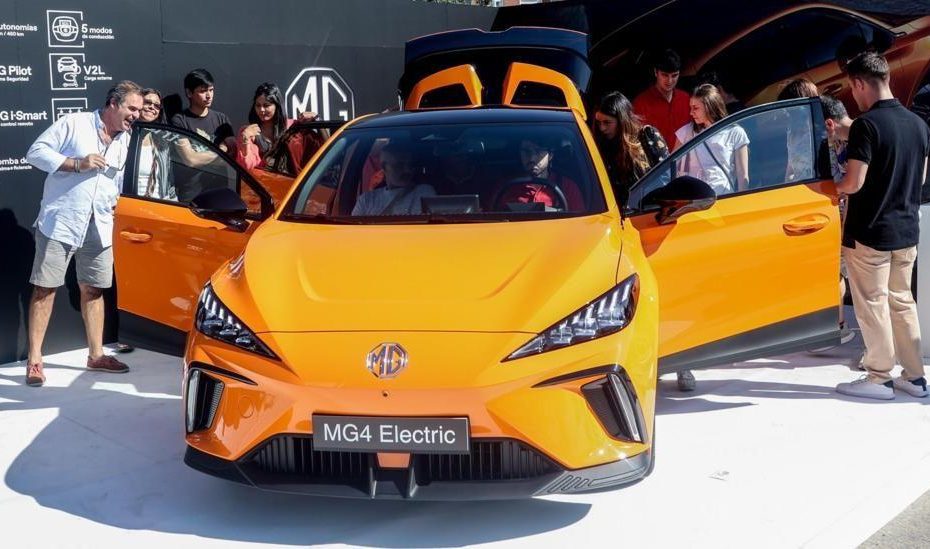Huge taxes will be imposed on imports of electric vehicles from China into the EU after a majority of member states backed the plans.
The initiative to introduce tariffs is aimed at protecting the European car industry from being undermined by what EU politicians see as unfair Chinese state subsidies on its own cars.
Tariffs of up to 45% will be imposed on electric cars made in China over the next five years, but there are concerns such a move could increase electric vehicle (EV) prices for buyers.
The decision, which divided EU member states such as France and Germany, threatens to spark a trade war between Brussels and Beijing, which has condemned the tariffs as protectionist.
China is banking on high-tech products to revive its weak economy, and the EU is the largest overseas market for the country's electric car industry.
The domestic car industry has grown rapidly over the past two decades and brands such as BYD have begun to enter international markets, raising fears among the EU and others that its own companies will not be able to compete with the cheaper prices.
The EU imposed varying levels of tariffs on several Chinese manufacturers this summer, but Friday's vote was to decide whether these would be imposed over the next five years.
The costs were calculated based on estimates of how much Chinese state aid each manufacturer received following an EU investigation. The European Commission has imposed individual duties on three major Chinese EV brands: SAIC, BYD and Geely.
EU members were divided over the tariffs. Germany, whose auto industry is heavily dependent on exports to China, opposed them. Many EU members abstained from voting.
German car manufacturers have spoken out against the proposal. Volkswagen has said tariffs are “the wrong approach”.
However, France, Greece, Italy and Poland were believed to be in favor of the tariffs. The tariff proposal could only have been blocked if a qualified majority of fifteen members voted against.
On Friday, SAIC – owner of the MG brand – said it would not change the price tags of its electric vehicles this year regardless of the outcome of the vote.
Germany's top industry association, BDI, called on the European Union and China to continue trade talks on tariffs to avoid an “escalating trade conflict.”
The European Commission, which held the vote, said the EU and China would “work hard to explore an alternative solution” to import taxes to address what it called “harmful subsidization” of Chinese electric vehicles.
EVs down in Europe, up in Britain
Figures show that in August this year, EU registrations of battery electric cars fell by 43.9% compared to a year earlier.
In Britain, demand for new electric vehicles reached a new record, but orders were mainly driven by commercial deals and large manufacturer discounts, according to the trade association.
Mike Hawes, chief executive of the Society of Motor Manufacturers and Traders (SMMT), said companies had “serious concerns that the market is not growing fast enough to meet the targets imposed”.
The industry has warned that motorists need better incentives to buy electric to help manufacturers ahead of the government's plan to ban the sale of new petrol and diesel vehicles by 2030.
Automakers are required to meet electric vehicle sales targets. Under the Zero Emission Vehicle (ZEV) mandate, at least 22% of vehicles sold this year must be zero-emission, with the target expected to be 80% by 2030 and 100% by 2035.
Manufacturers who do not meet the quota could be fined £15,000 per car.
The industry, including the bosses of BMW, Ford and Nissan, wrote to Chancellor Rachel Reeves on Friday saying the industry is “likely to miss those targets”.
It said economic factors such as higher energy and material costs and interest rates have meant electric cars have “remained stubbornly more expensive and consumers are reluctant to invest”. The average cost of buying an electric car in Britain is around £48,000.
They said a “lack of confidence” in the UK's charging infrastructure was another barrier to encouraging people to switch to electric.
![]()

